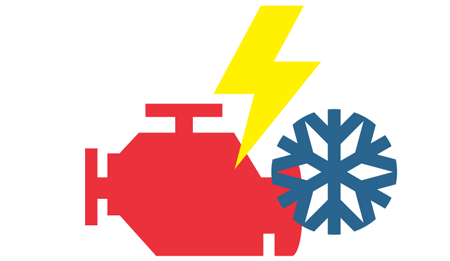Tri-Generation Continues to Spread in the German Market After Some Great Recent News
The German Federal Ministry for Economic Affairs and Energy (Bundesministerium für Wirtschaft und Energie) announced on May 8th, 2018 that, an agreement has been reached with the EU Commission regarding the Renewable Energies Law levy (“EEG-Umlage”) for CHP plants. According to the agreement, CHP plants operators will continue to pay only 40% of the levy, clearing the uncertainty about the future of CHP plants in Germany which lasted for over 6 months, after pressure from the EU Commission to charge the operators the full levy amount. The agreement will still need to be turned into law, nevertheless this was a huge step forward – and great news for the industry.
This ensures that tri-generation (combined heat, power, and cold generation) will remain vastly more economical than conventional compression cooling and boiler heating, whether it is applied in industrial facilities, hotels, data centers, hospitals, office buildings, or any place where cooling, heating, and electricity are required.
The subsidies for CHP plants, and the German BAFA subsidy for adsorption, along with the fact that FAHRENHEIT adsorption chillers can save up to 90% electricity compared to compression chillers, as well as extend the operation time and electricity generation of the CHP plant in the warmer days, make these kinds of projects very desirable with a payback period of around 2 to 3 years for most tri-generation projects in Germany.
Continuing the favorable treatment of tri-generation also benefits the phase-out of harmful HFC coolants in favor of pure water, as used in adsorption cooling.



